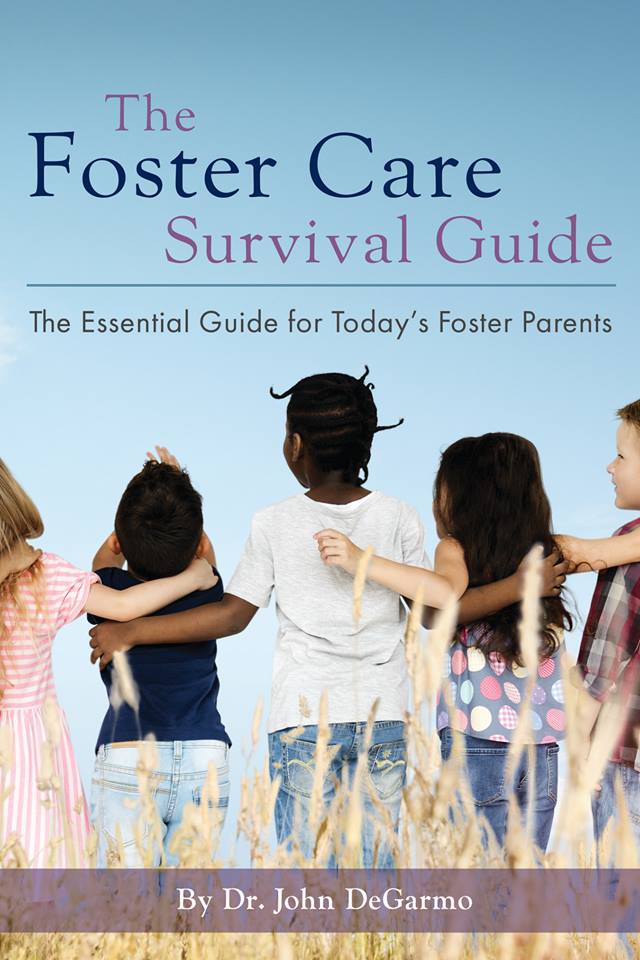
There are times when I am a little frustrated with the birth parents, due to the abuse and neglect they may have inflicted upon the children from foster care living in my house, and a part of my family. When a child from foster care is placed into my home, that child becomes a child of my own; a child that I love unconditionally, and one that I will fight for with all my strength and resources in an attempt to protect him from further harm and trauma. With this in mind, I sometimes have a difficult time getting past my own judgmental nature, and that is so very wrong of me. I know this, and I work hard at getting past this weakness of mine. As I noted above, my wife is much better at this, and is a very loving and caring person; more so than I am, and this is one of her strengths. Yet, I understand the importance of creating a healthy and positive working relationship with the birth parents of my foster children. After all, the end goal is that of reunification between the child and the parent. As foster parents, we want to ensure that we do the best we can with the birth parents so that the child living with us and the child that has become a part of our own family has a happy, healthy, and safe home to go back to.
To be sure, it can be difficult enough having a foster child in your home. He may have been placed in your home because of abuse or neglect from his family. Perhaps he was in danger from parents who were abusing themselves. Whatever the reason for his placement into the child welfare’s custody, your foster child has most likely come with some emotional problems, and is struggling with the loss of his family. As a foster parent, it is part of your job to help your foster child deal with these issues, and help him adjust to his new environment, as well as develop a positive and loving relationship with him.
Join the thousands who receive Dr. DeGarmo’s FREE foster care newsletter. Simply fill out the form below.
With that in mind, what can be more difficult, though, is another part of your role as a foster parent; working with birth parents. It can be difficult, and it can be stressful at times. Indeed, there are times when it just might not be possible. What is best for your foster child, though, is that you work alongside your caseworker, as well as the birth parents, and try to determine what is best for your foster child’s future, as well as how to best meet his needs in the present.
As foster parents, part of our job, so to speak is that of Co-Parenting. When a foster parent shares the nurturing of a foster child alongside the birth parents and caseworker, reunification tends to happen at a quicker and more successful rate. Co-Parenting sees you, as a foster parent, working alongside the biological parents of the child living under your roof, and with your family. This may be the more difficult part of your job. To begin with, these may be the people who abused or neglected your foster child. Helping them might just be the last thing you wish to do. Indeed, your first inclination may be that these are people who do not deserve to have their child back. That’s human nature, my friend. That’s normal. You became a foster parent because you have a heart for children, you care about kids in need, you want to help them and protect them, and you want to give them a home where they are loved.
At the same time, we are also here to help the parents of the children that we are caring for. Therefore, it is important that you do not prejudge the birth parents and biological family members before you meet them. What is important to consider, though, is that many biological parents of foster children were abused themselves, and know of no other way when raising children. Also disturbing is that some birth parents were foster children, as well, and are just repeating the cycle they went through as a child, like it is for two of my own children, who are third generation foster care. Third generation. Let that sink in. That means the parents and grandparents of two of the children I have adopted from foster care were also in the system, as well. Certainly, there are reasons why their children are in care that we may never understand. What is best for your foster child, though, is that you work alongside your caseworker, as well as the birth parents, and try to determine what is best for your foster child’s future, as well as how to best meet his needs in the present.
There are those biological parents who will be happy to work with you. They will not only be eager to work alongside you in order to be reunited with their child, but may also wish to learn how to better their parenting skills from you. They will appreciate that you are taking care of their child, and will be grateful for all that you do for him. You might be providing much more opportunities for him than they were ever able to do themselves, such as clothing, medical care, and material items. They may be grateful that he is in a house that has enough food for him, as well as appreciate that he is in a clean and safe home. These birth parents may even be thankful that he is in an environment where their child is getting a better education.
Next month, we shall look at those families that are angry with the child welfare agency, and perhaps with you, and how you can best help them and work with them.
(Excerpt from The Foster Care Survival Guide: The Essential Guide for Today's Foster Parents)
-Dr. John
Want MORE about this? Order your signed copy of the new book The Foster Care Survival Guide. Order your special copy HERE.




 RSS Feed
RSS Feed